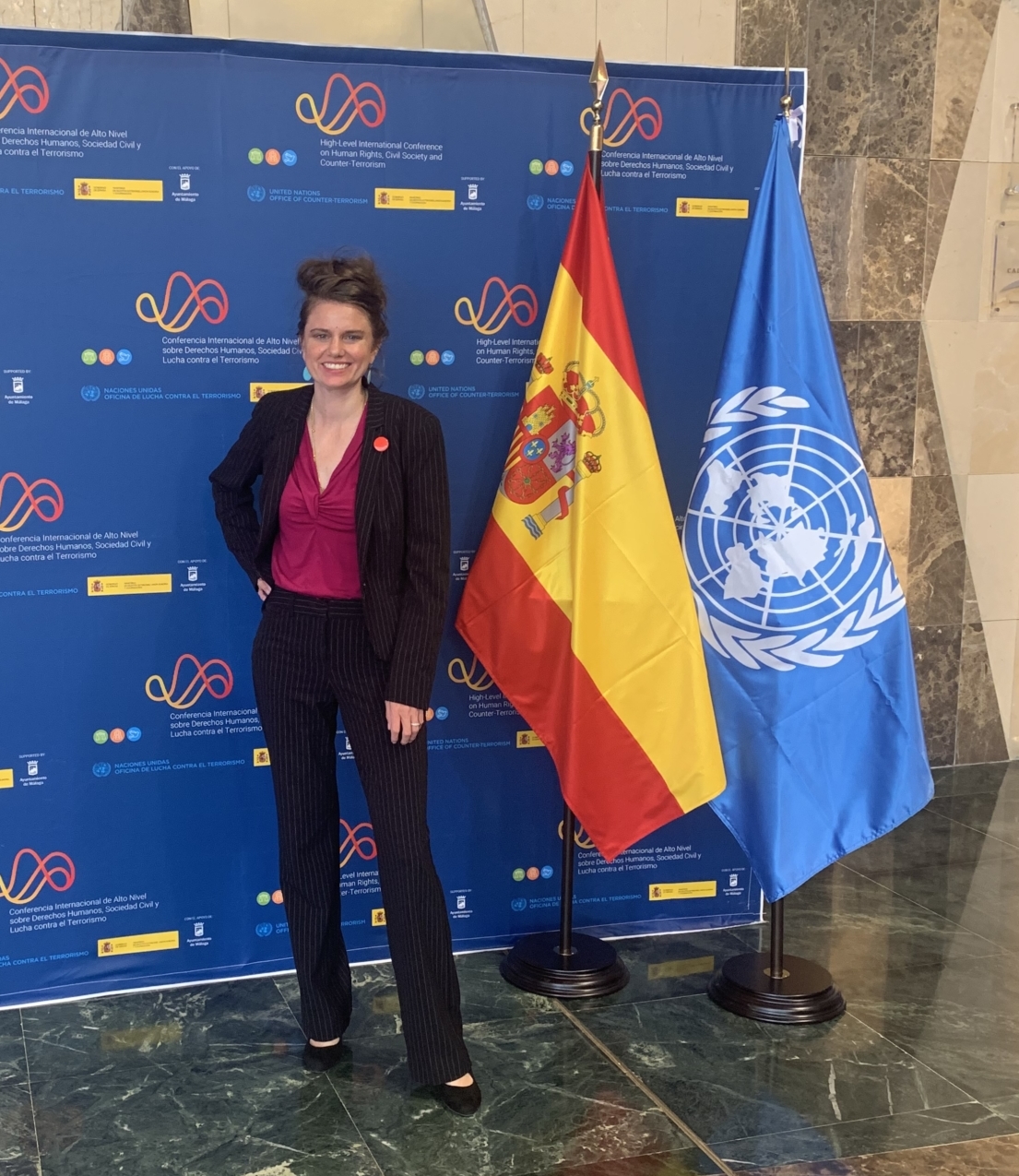C&SN’s Associate Director for Policy and Advocacy Ashleigh Subramanian-Montgomery traveled to Málaga, Spain this week to participate in the United Nations High-Level International Conference on Human Rights, Civil Society and Counter-Terrorism.
Subramanian-Montgomery traveled to Málaga, Spain this week to participate in the United Nations High-Level International Conference on Human Rights, Civil Society and Counter-Terrorism.
During Session IV of the conference, Civil Society Efforts for Preventing and Countering Terrorism, Subramanian-Montgomery spoke from the floor to underscore the type of engagement civil society requires in order to be an effective partner in implementing human rights-based approaches to counterterrorism, and to highlight the necessity of translating commitments into action:
Thank you to the Kingdom of Spain and to the UN Office of Counter-terrorism for hosting this conference. And thank you to the Special Rapporteur for not only recognizing, but for promoting civil society’s leadership in this space.
At the High-level Ministerial meeting yesterday, we saw a diversity of countries represented, with differing ideas, perspectives, and opinions, from all regions of the globe. And so it is with civil society. Like you, we are composed of diversity, complexity, differing opinions, and contradictions—and though regrettably not well represented here in Málaga—like you, we also come from all regions of the globe. Just as the UN is not a monolith, and Member States certainly aren’t a monolith, nor is civil society.
When we ask for meaningful, consistent, and formal engagement, what we are really asking for is to be seen—and treated—as equal partners. And we are asking that equal partnership be multidirectional and extended to all civil society partners: the easy, the difficult, the ones fluent in UN and government lingo, and the ones fluent in local and community needs. Likewise, all civil society partners should be free to dictate and operate on their own terms.
Recognition of, and respect for, our expertise, creates an enabling environment for civil society. And to create an enabling environment for civil society is to create an enabling environment for civic space.
Today is our final day together in this first of its kind conference. If there’s one thing every conference is full of, its commitments. And we are grateful for our UN and Member State colleague’s commitments: Commitments to meaningfully include civil society in counterterrorism measures, programs, and strategies. Commitments to implementing a human rights-based approach. Commitments to integrating an intersectional gender perspective.
But commitments are only as good as they are actually applied once the conference ends. I urge our UN and Member State colleagues to ask themselves, what will I do tomorrow to operationalize the commitments of today?
As the Special Rapporteur noted yesterday, it took us 21 years to get here. And though that road has been long, it does not need to take us 21 more to get to where we need to be.
You’ve heard our asks. You’ve made the commitments. Listen today. Act tomorrow.
